Rashid Khamis Mohamed, the Director General of the Kenya Roads Board (KRB), finds himself at the center of damning allegations that cast a shadow over his leadership and the institution’s integrity.
These accusations suggest a network of corruption, abuse of office, and gross misconduct, all of which threaten to erode public trust in the body responsible for managing Kenya’s road infrastructure.
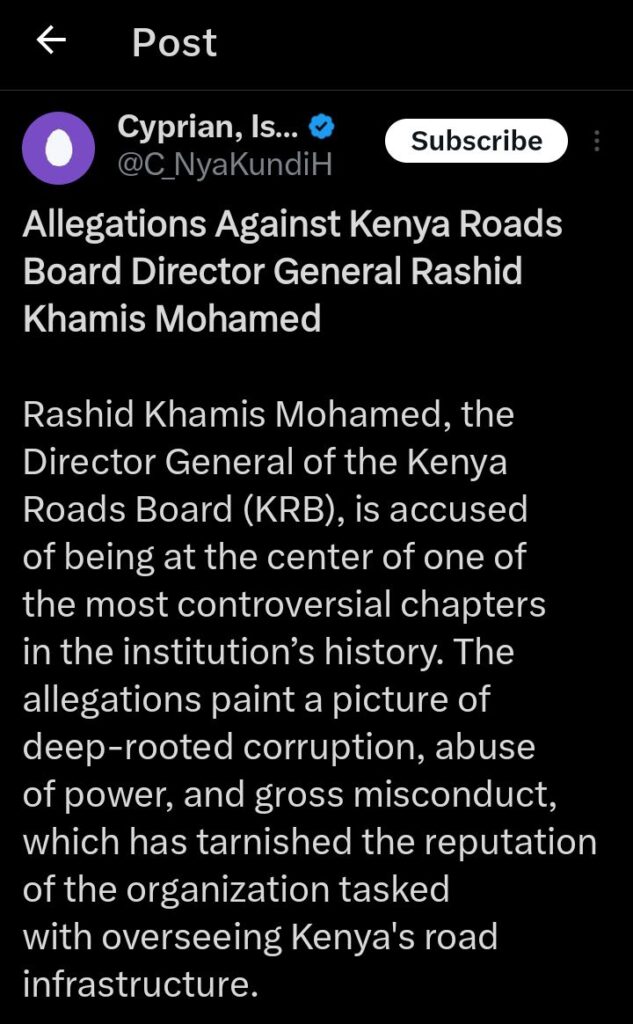
Cyprian Nyakundi, a well-known whistleblower, has brought these issues to light on his X handle, exposing the alleged rot within KRB.
Central to the allegations is the misuse of the 10% KRB/CS Allocation.
Rashid is accused of selectively distributing funds to specific counties and Members of Parliament without proper board approval.
This allocation process reportedly ignores the Road Sector Investment Plan and the constitutional principle of equity.
Instead, the funds allegedly serve as a vehicle for Rashid to solicit kickbacks, with contractors tied to these projects being forced to return a portion of the funds.
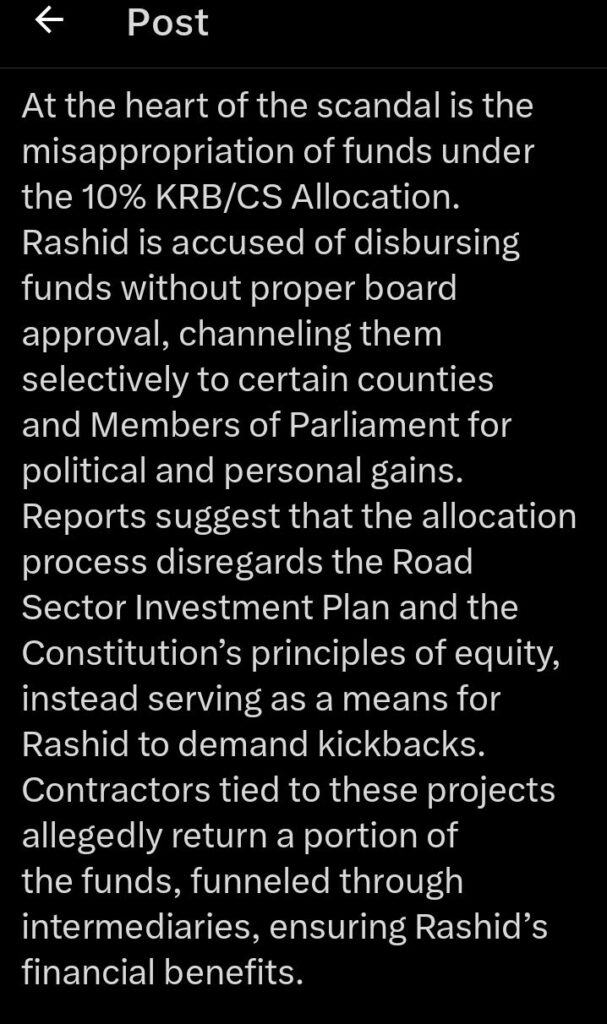
These kickbacks are said to be laundered through intermediaries, creating financial benefits for Rashid and his associates.
The financial mismanagement accusations go deeper.
Discrepancies have been noted between the Kenya Roads Board Fund’s financial reports and those of implementing agencies.
Internal auditors, reportedly barred from accessing crucial transactions, have been unable to perform effective oversight for years.
Rashid allegedly fabricates activities, such as bogus training programs and inflated expenses, using ministry letterheads to withdraw funds without accountability.
These actions point to a systematic abuse of resources meant for national development.
Rashid’s tenure is further marred by allegations of personal misconduct, particularly towards women.
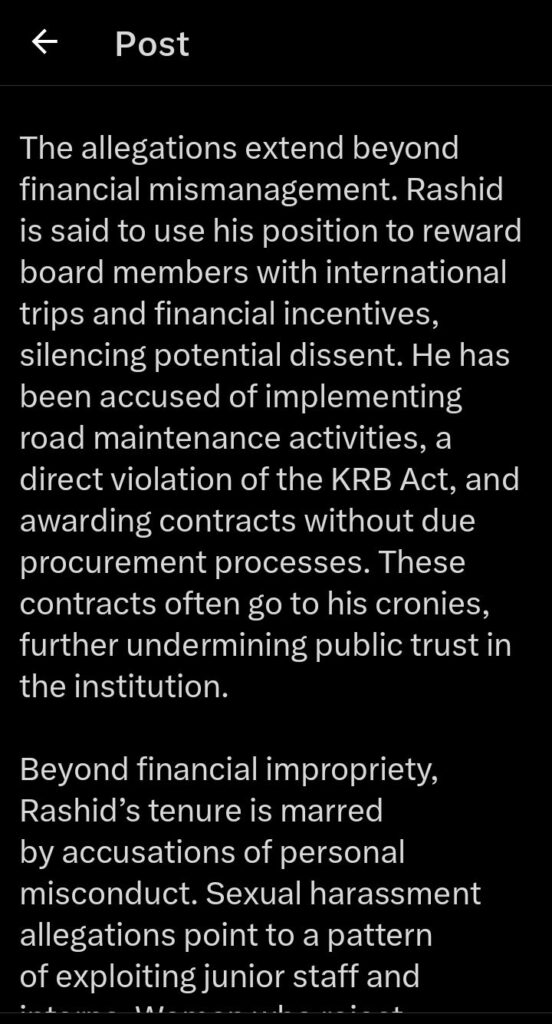
He is accused of sexually harassing junior staff and interns, creating a toxic work environment where those who reject his advances face retaliation.
Women reportedly experience manipulated performance reviews, forced resignations, or outright dismissals.
Favoritism is also alleged, with female employees involved in inappropriate relationships with Rashid receiving promotions and financial rewards over their more qualified colleagues.
Extravagant misuse of public resources is another area of concern.
Rashid allegedly authorizes expensive business-class travel, exceeds his travel entitlements, and pockets allowances for trips he does not attend.
These actions violate government regulations and place unnecessary financial strain on taxpayers.
Beyond internal misconduct, Rashid is also implicated in external scandals.
He is accused of swindling funds through credit card schemes and demanding kickbacks from banks managing KRB funds.
Reports also suggest he owns undeclared assets abroad, including properties and accounts in London, acquired through questionable means.
Under Rashid’s leadership, the Kenya Roads Board has allegedly become a hostile environment for employees and whistleblowers.
Auditors and investigators face intimidation, harassment, and even threats to their safety.
Reports of bugged offices and silenced dissent further illustrate the toxic culture cultivated under his administration.
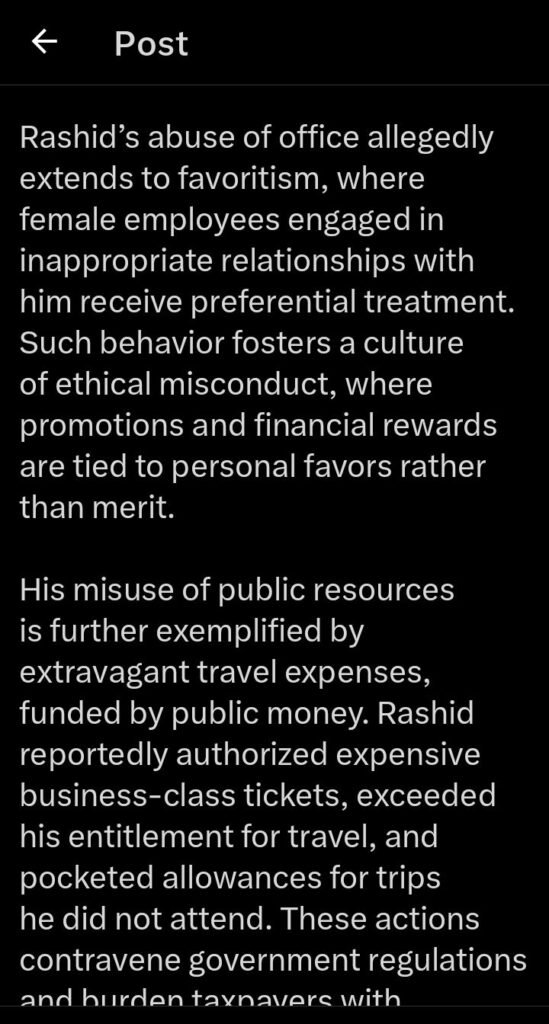
These revelations call for urgent action to investigate the allegations against Rashid Khamis Mohamed and ensure accountability.
The safety and dignity of KRB employees, particularly women, must be prioritized.
Oversight bodies must step in to restore transparency, justice, and trust in an institution that plays a critical role in Kenya’s development.
Rashid’s alleged actions represent a betrayal of public trust, and addressing these issues is essential to safeguarding the integrity of the Kenya Roads Board.











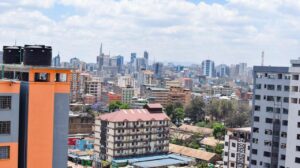









Add Comment